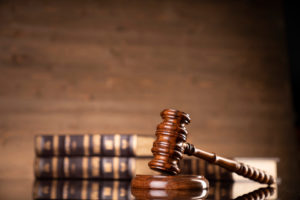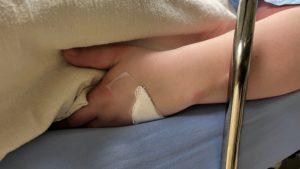
The discovery stage of a personal injury trial follows the filing of a lawsuit for compensation. During this stage, both sides are expected to provide all relevant information and documents to the other party in an effort to give both sides a fair chance during the trial. The discovery stage also gives insurance companies a chance to determine if your case is strong enough to warrant a settlement.
If you have a personal injury claim in the South Gulf area, Morris Bart has more than 15 locations where we provide legal representation in personal injury claims. Our team of lawyers offers quality legal advice that you can trust. Give our team a call to learn how we can help.
Legal Obligation of Evidence Disclosure During Discovery
The US Constitution gives the defense the right to know what evidence the claimant has against them. The Constitutional right to know what evidence the prosecution has allows the other side a fair chance at defending themselves at trial. The disclosure of this information is the reason for the discovery stage and it is necessary before any type of trial.
There are other ways that discovery serves the claimant and the defendant.
- Allows the defense time to prepare
- Eliminates surprises during the trial
- Allows the insurance company to decide if settlement negotiations are necessary
- Establishes the facts of the claim to save time during the trial
For a free legal consultation, call 800-537-8185
Parts and Procedure of Evidence Discovery
The discovery stage of a personal injury trial does not last a set length of time. The time needed to exchange and further investigate relevant evidence will depend on the factors of your case. For more complex situations, discovery can last months. However, the average personal injury case will only require weeks.
Interrogatories
Both lawyers are allowed to present a list of questions they would like to have answered. These questions can be specific to your claim or they may be just general fact clarification. Lawyers can object to questions considered to be unfair or beyond the realm of the case.
This is sometimes called written discovery because the questions and answers are written or typed. The answers may be simple or require more information. Some states limit the number of questions allowed, while others do not.
Requests for Admission
Not as common but just as useful, requests for admission are presented as a list of questions. These questions can be used to establish the facts of the case, saving time at trial. Instead of requesting informational answers, requests for admission must be yes or no questions.
Disclosure of Documents
Document discovery is when any documents that contain information relevant to your case should be made available to all parties. There are a wide variety of documents that can be introduced.
- Medical bills
- Police report
- Proof of missed work hours and wages
- Photos of injuries or damage
- Repair statements
- Documents proving current and future treatments or disabilities
- Computer files
- Insurance policy information
- Witness statements
Deposition
The deposition is your sworn testimony which you will be asked to provide. Your attorney will ask questions that you will answer while a court reporter transcribes the exchange for the official court record. The deposition is given under oath and is your official claim of events.
Your deposition testimony will require you to discuss the events leading to your injury. The events should be recounted to the best of your knowledge, but should only include what you know to be true. You should not discuss events that you assume to be true or have been told about.
Exceptions to the Rules of Disclosure
Although all evidence that will be presented at trial must be provided during discovery, information that is privileged cannot be asked about and is not required to be disclosed. Privileged information in a personal injury case includes communications that take place between parties whose relationship affords legal privilege. Some examples include:
- Lawyer-client
- Doctor-patient
- Spouse-spouse
- Religious advisor-parishioner
Settlement Negotiation
A lawsuit that is decided by the court after a trial can result in a larger amount of compensation being awarded. If a settlement is offered, it is important to decide if it is enough to cover current and future medical costs. Once you have accepted a settlement, you cannot change your mind or request more compensation.
If you have a valid case that you are able to provide sufficient proof of during the discovery stage, chances are good that the insurance company will offer to settle your claim. This saves the trouble and expense of going to trial where they could be held liable for a larger amount of compensation. Before deciding to accept any settlement offer, it is best to seek professional legal advice.
Click to contact our personal injury lawyers today
Things You Should Know About the Discovery Stage of a Trial
When you are represented by a highly knowledgeable personal injury lawyer, you can feel confident that your claim will be properly compensated. Every case is different and your lawyer can offer you advice specific to your case. These are some tips and best practices for the discovery stage of a personal injury claim.
- Discovery offers both sides a fair chance and time to prepare. Evidence is disclosed and testimony is given, but discovery is not a trial.
- You should be honest and forthcoming when discussing your claim with your lawyer, ensuring you provide all necessary information.
- Never answer questions or provide information you are not asked for without your lawyer’s approval.
- Resist the urge to provide an explanation or additional information not specifically asked for.
Representation You Can Trust
When you have confidence in your legal representation, there is no need to stress and dwell on the matter. The healing process takes time and should not be complicated with fear and unnecessary worry. An experienced personal injury lawyer will provide you with peace of mind by keeping you informed while handling matters with your best interest as the top priority.
Contact Morris Bart for a Free Consultation Today
The Morris Bart personal injury law firm is committed to providing you with the representation you can feel confident about. We will help you with the discovery stage of a personal injury trial and teach you what you can expect.
At Morris Bart, we handle all types of personal injury claims including medical malpractice and premises liability. When you need a personal injury lawyer you can feel confident in, the Morris Bart personal injury lawyers are here for you. Call Morris Bart today or fill out the online contact form.
Questions?Call 800-537-8185
to find a Morris Bart office near you.





